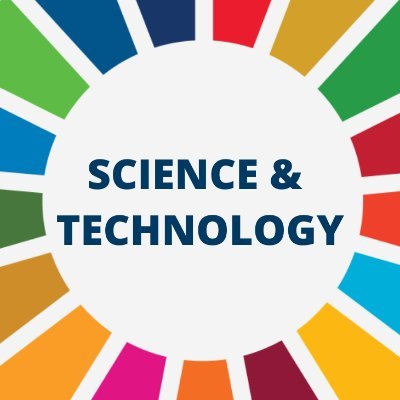
The special issue aims to highlight the evolving potential of big data analytics to enable a comprehensive understanding of complex Earth system processes and cutting-edge engineering for sustainable solutions to global challenges. It features important contributions from the community of science and engineering, led by the International Science Council and World Federation of Engineering Organizations.
We all are aware that the modern digital framework has enabled several innovations in science and technology that have facilitated our analytical capabilities, providing us with insights into data that were not possible a few decades before. As a result, we are witnessing an exponential growth in digital services and solutions in various aspects of human society. Almost all domains of science are exploring the prospects of digital applications. In the process of digitalization, big data provides us with new ideas and methods to understand Earth and undertake the epic mission of sustainable development with a new impetus.
Transforming our World: The 2030 Agenda for Sustainable Development provides a comprehensive program to collectively address several global challenges, such as disaster risk reduction, climate change, food security, and environmental protection. However, gaps in data and methods to evaluate several indicators restrict effective compliance and implementation in several nations of the world.
Therefore, there is a need to improve data access and information sharing among different organization and countries. This is possible only through democratization of digital resources, information, data, and above all scientific knowledge. This is especially true for fields in natural sciences and engineering where comprehensive knowledge of complex interactions between different ecological and environmental systems is needed to respond to shared challenges.
Digitalization and Sustainability
Acknowledging the transformational force of the new digital technologies, this project aims to maximize their benefits for science and for the achievement of the SDGs.
There are opportunities within the United Nations Technology Facilitation Mechanism framework to improve digitalization and networking of scientific data and information. This will not only enable the flow of knowledge and information to all parts of the world but also help to foster and empower young talent to innovate and devise solutions for their communities using resources and information shared globally. Working to exploit these opportunities, CBAS, as an international research center, will work within the context of a “science for sustainability” framework, and develop scientific products, methods, and technologies from global to local scales to ensure global access to the latest, most reliable information on the SDG indicators. It will also work to mobilize the technological and data resources necessary to analyze and visualize information for informed actions and policies, with fair and open access to all.
On 22 September 2020, China announced during the General Debate of the 75th Session of the United Nations General Assembly that it will set up an International Research Center of Big Data for Sustainable Development Goals.
CBAS aims to harness big data to serve Transforming our world: the 2030 Agenda for Sustainable Development, featuring multidisciplinary research related to Earth system science, social and economic sciences, as well as sustainability science. It is devoted to monitoring and evaluating indicators of the sustainable development goals in the areas where big data plays a key role.
CBAS works towards a vision where data is open and accessible across borders and disciplines, technology is available to support the entire policymaking process, and knowledge and ideas are communicated and grown, especially among developing countries.
Motivated to ensure collective development, CBAS has five key missions:
1) Develop SDG data infrastructure and information products;
2) Develop and launch a series of SDG satellites;
3) Provide new knowledge for SDG monitoring and evaluation;
4) Establish a think tank for science, technology, and innovation to promote SDGs; and
5) Provide capacity development for SDGs in developing countries.

The UN Scientific and Technological Community Major Group
The ISC, together with the World Federation of Engineering Organizations (WFEO), is a co-organizing partner of the Scientific and Technological Community Major Group at the United Nations. In this role, we secure a mandate for science at the UN and integrate science in major global policy processes, such as the implementation and monitoring of the 2030 Agenda.
Image by United Nations Photo on Flickr.